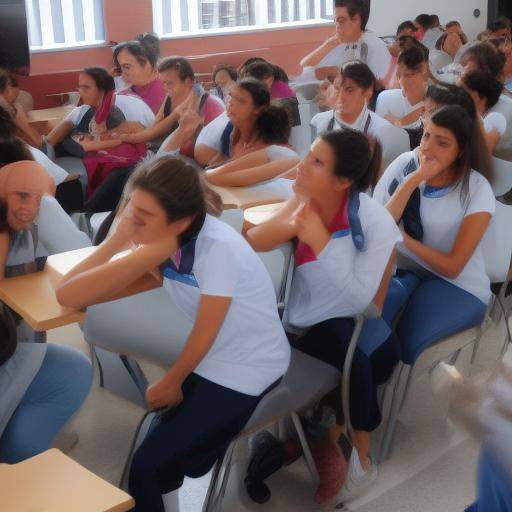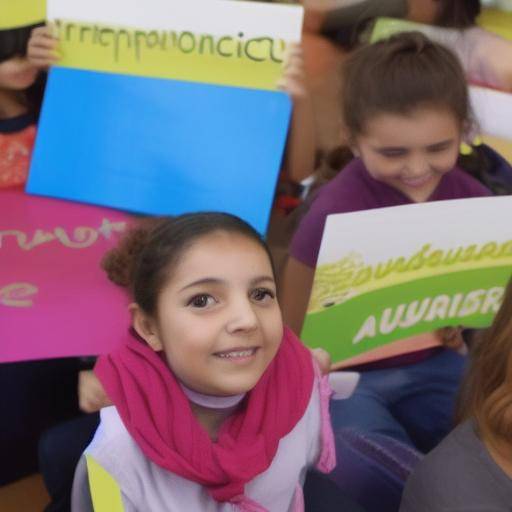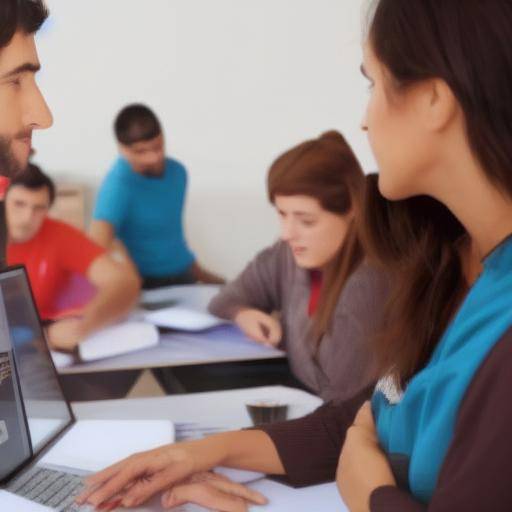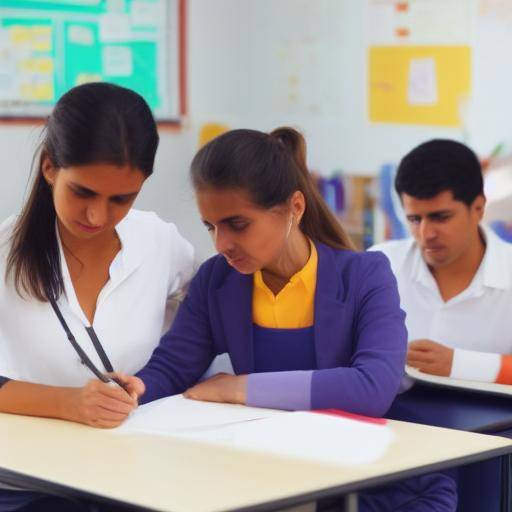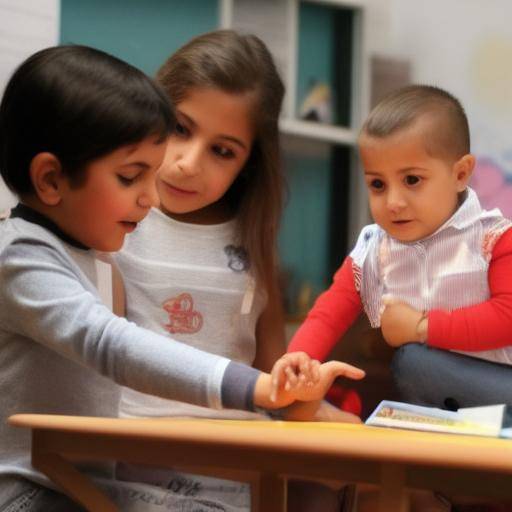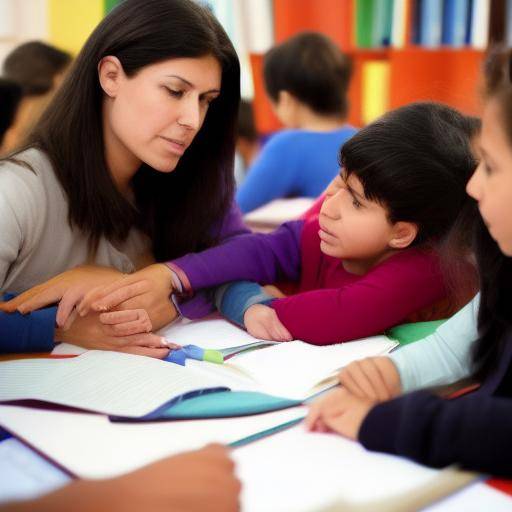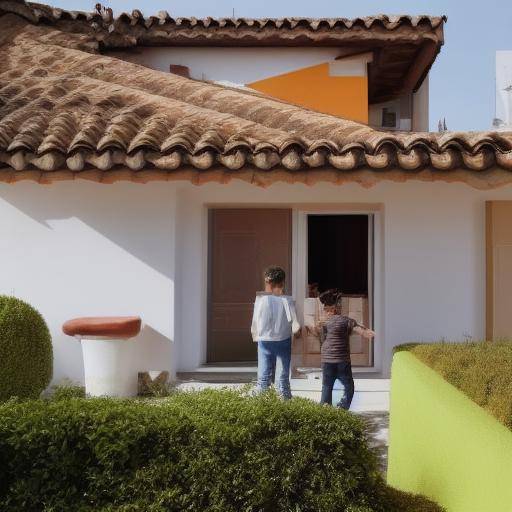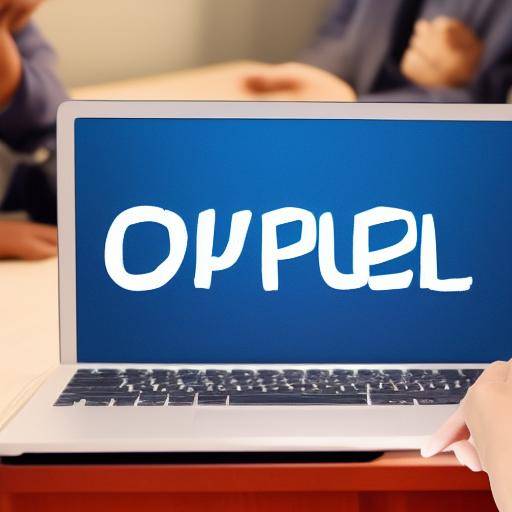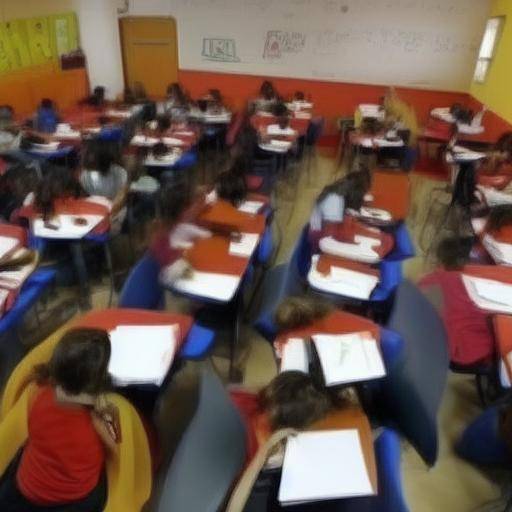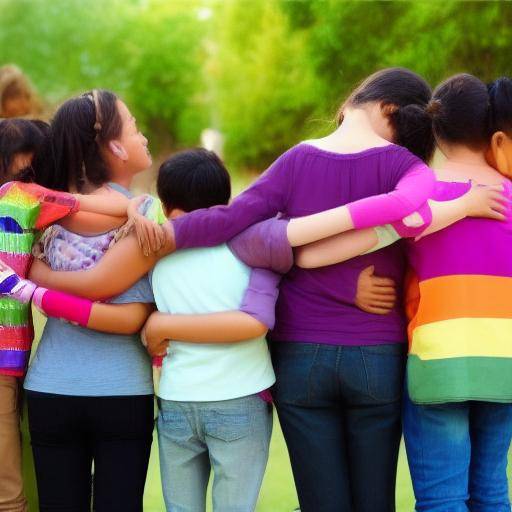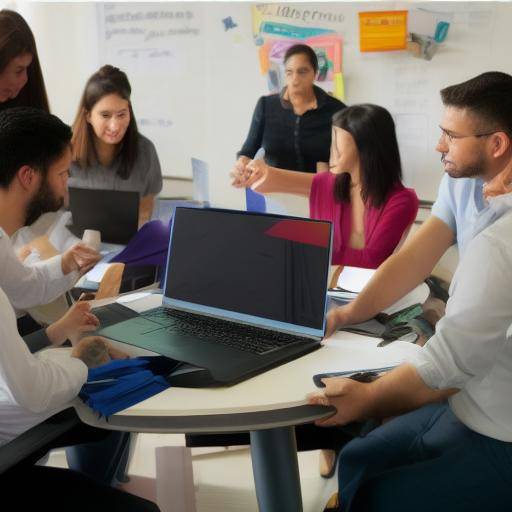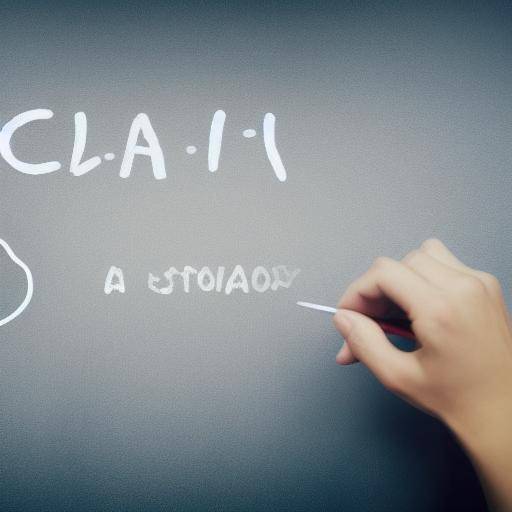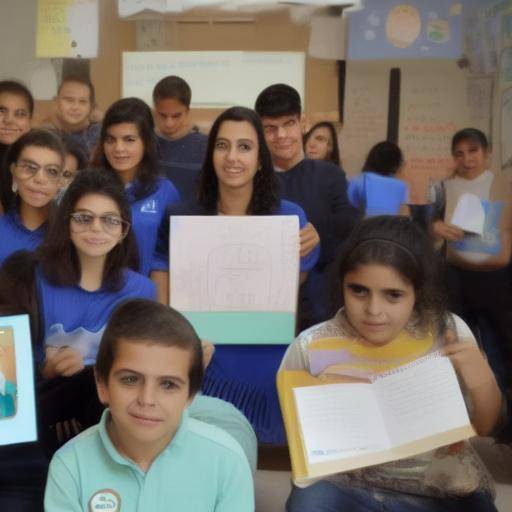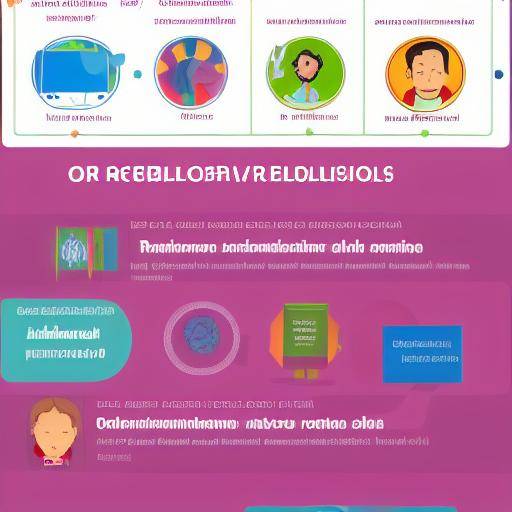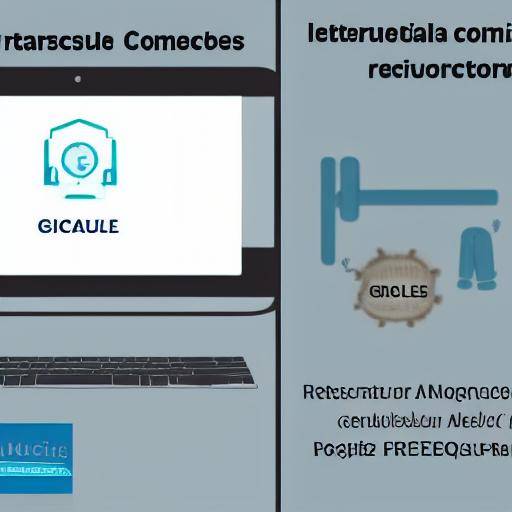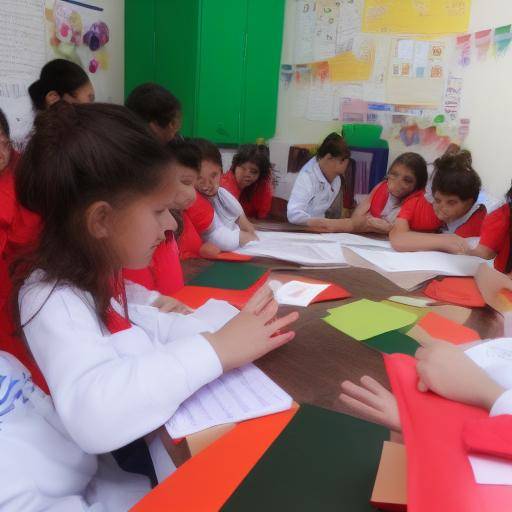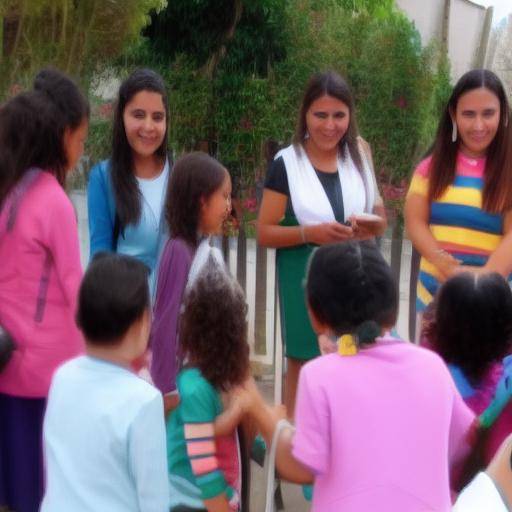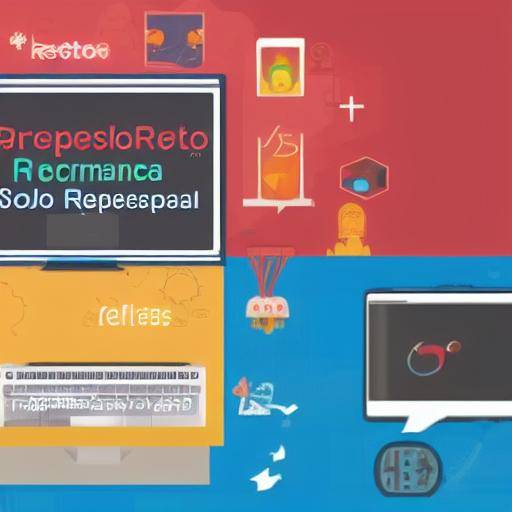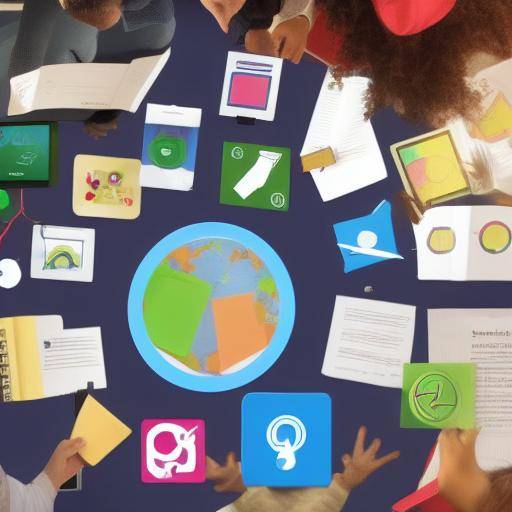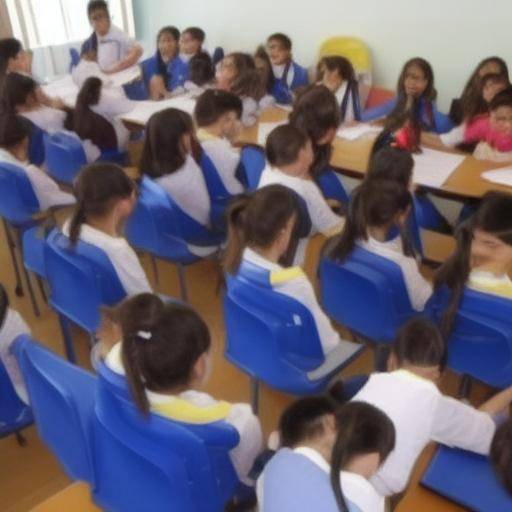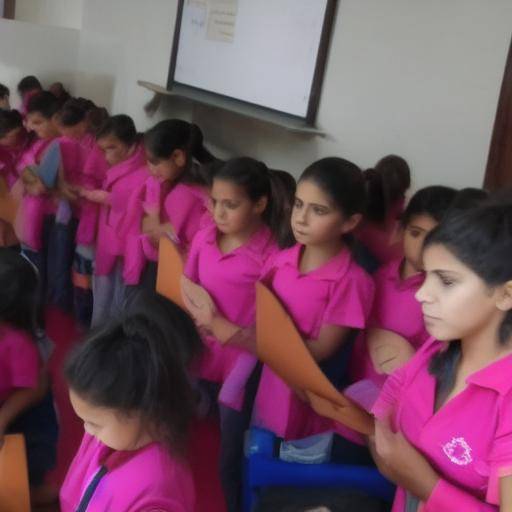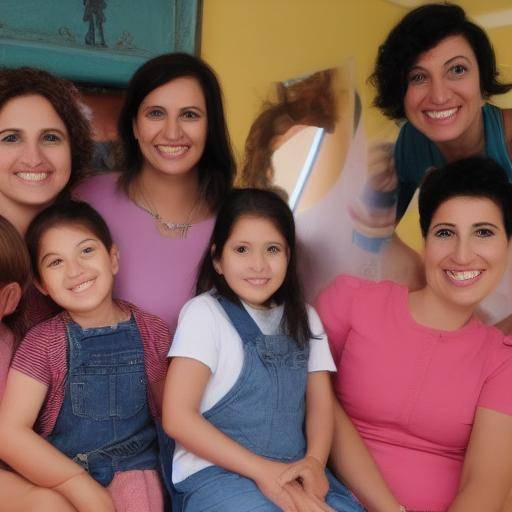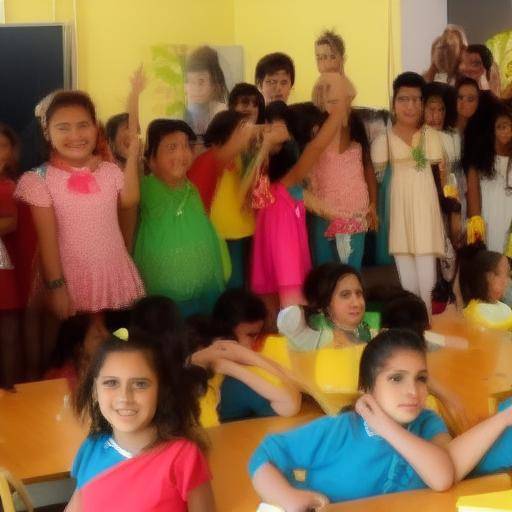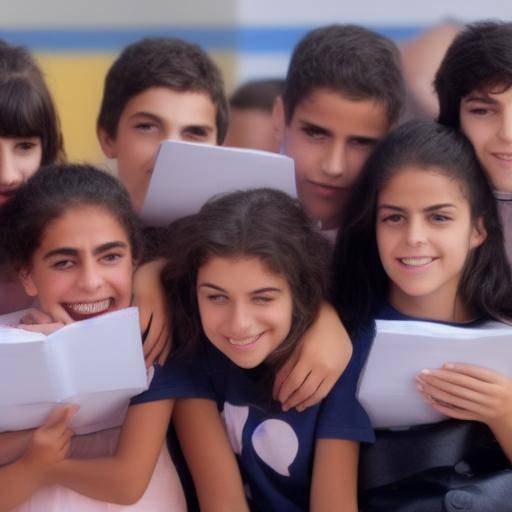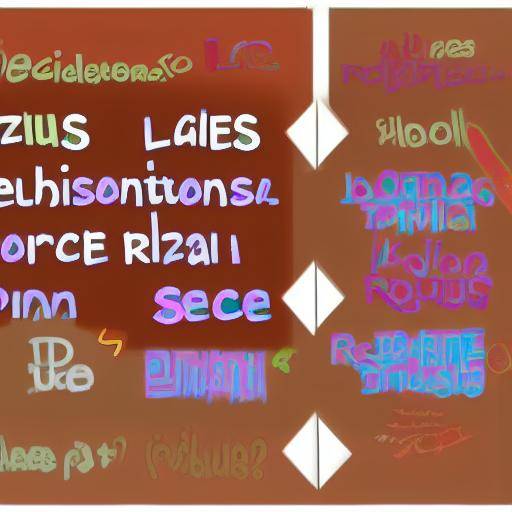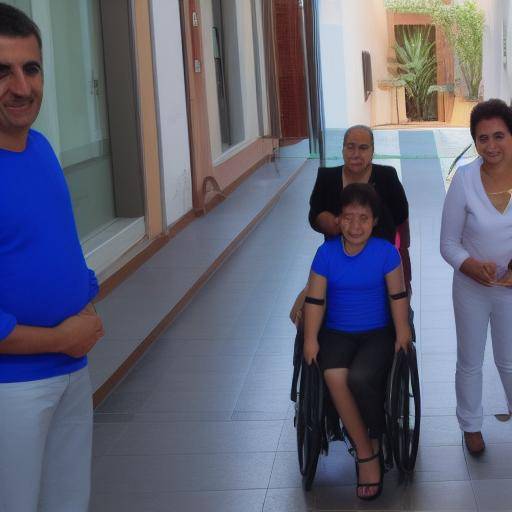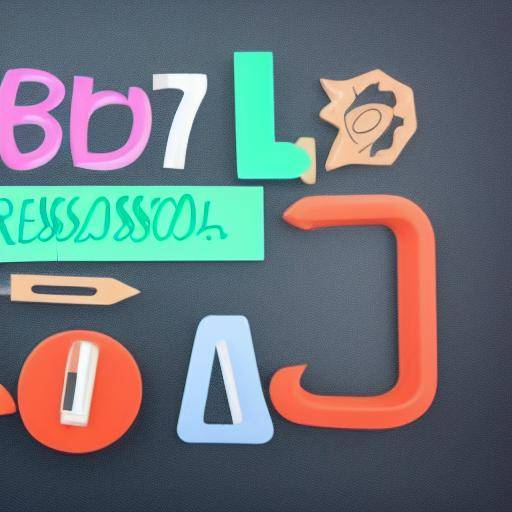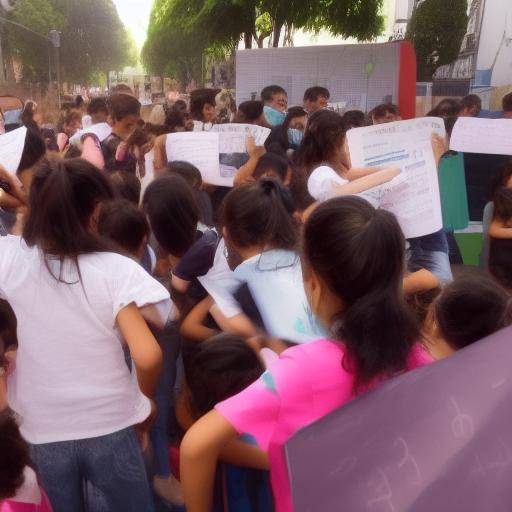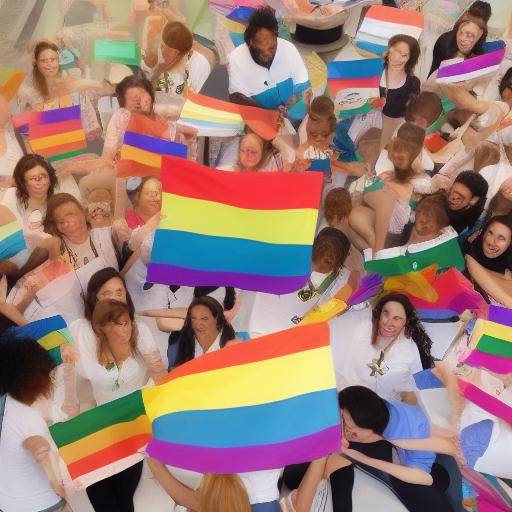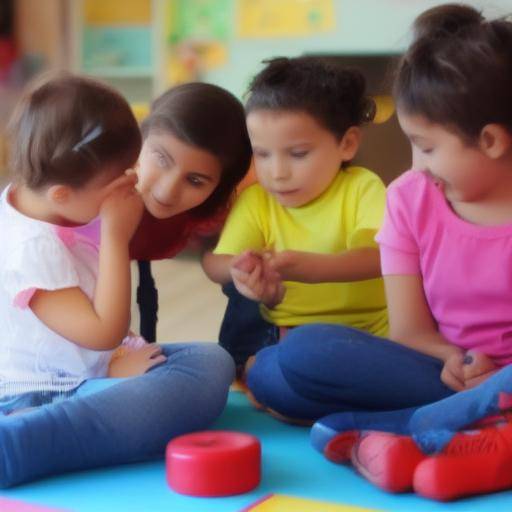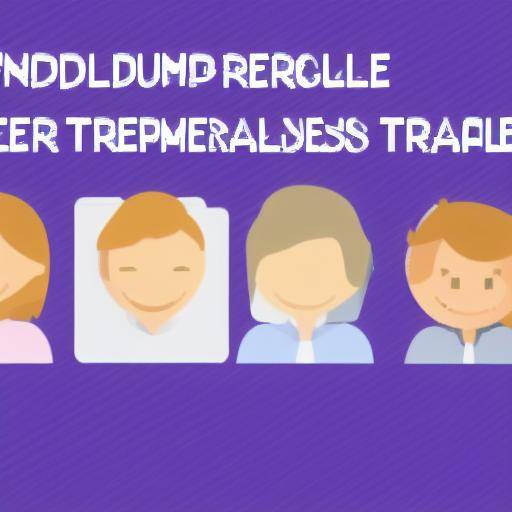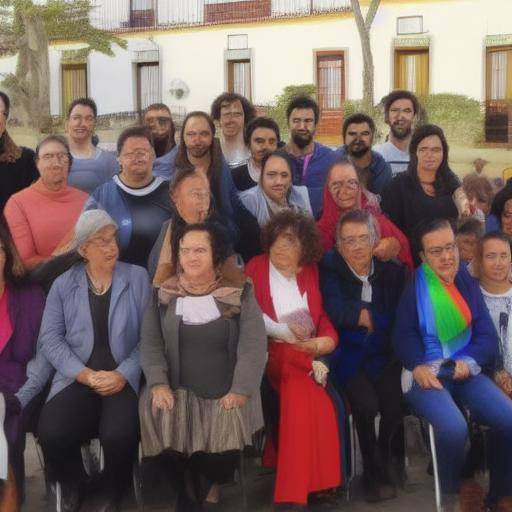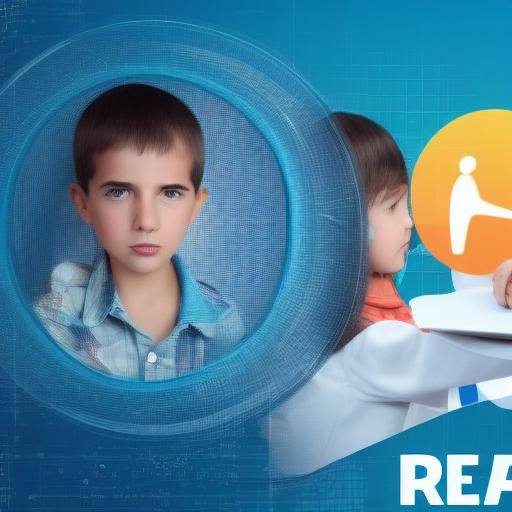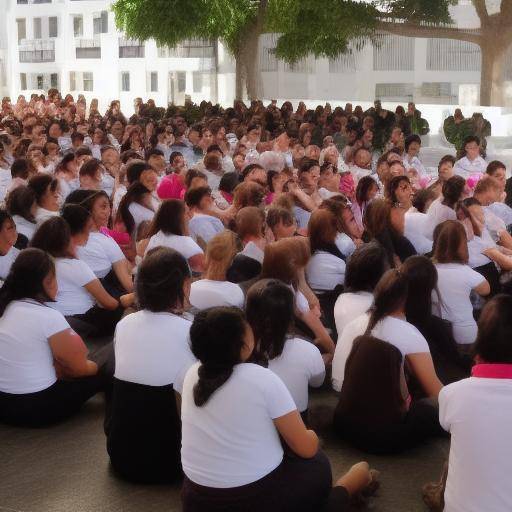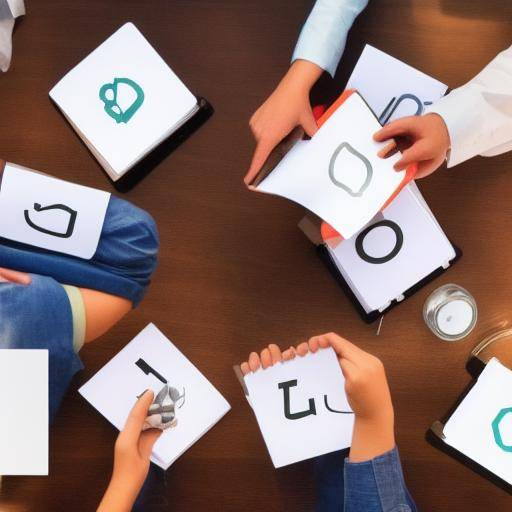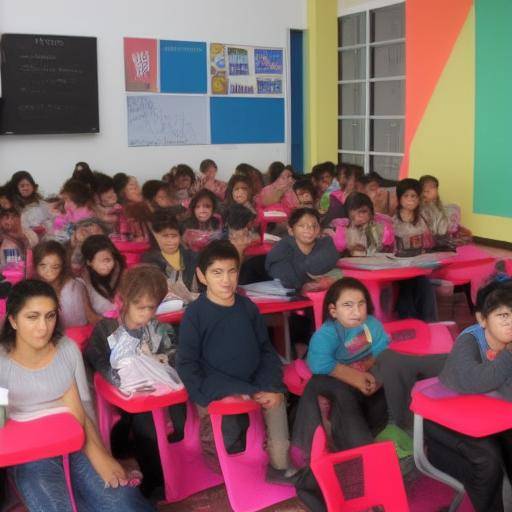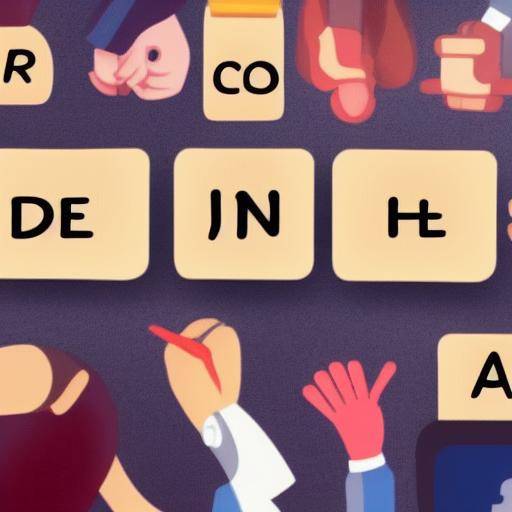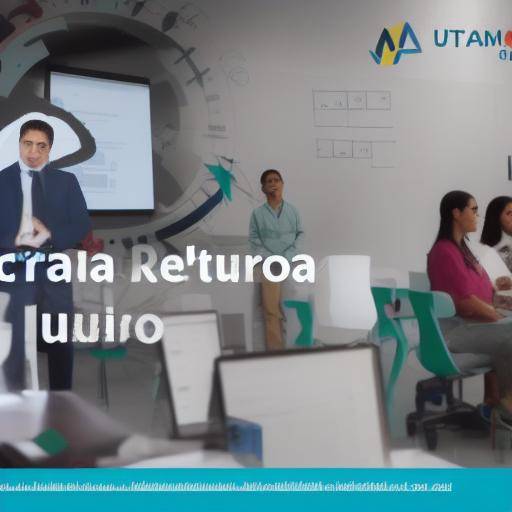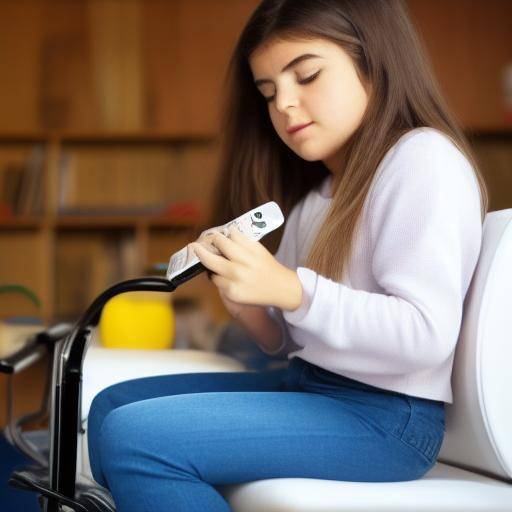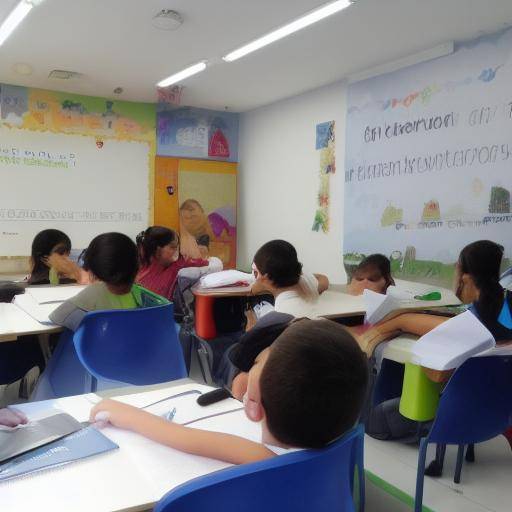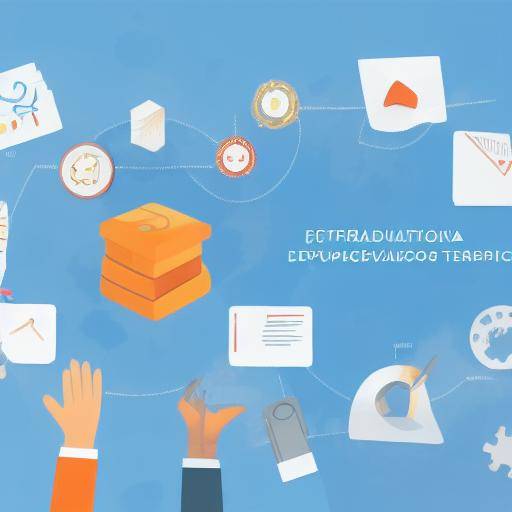
Teamwork is fundamental in the academic sphere, as it helps to develop social skills, fosters collaboration and allows to tackle complex tasks more effectively. Evaluating the effectiveness of teamwork in students is crucial to understanding the impact of this practice on its performance and development. In this article, we will explore the resources available to evaluate the effectiveness of teamwork in students, providing relevant and useful information for educators, parents and students interested in improving their collaborative skills.
Introduction
Teamwork is an essential skill in professional and personal life. Through collaborative work, students learn to communicate effectively, understand and respect different perspectives, distribute tasks equitably and manage time efficiently. Evaluating the effectiveness of these skills in the academic context not only provides information on individual and group performance, but also offers the opportunity to identify areas of improvement and promote the integral growth of students.
In this article, we will explore the resources available to evaluate the effectiveness of teamwork in students, considering multiple approaches, tools and methodologies. From the history and evolution of teamwork in educational environments, to deep analysis, comparisons, practical advice and future predictions, this article will provide an integral perspective on the evaluation of teamwork in students, supported by relevant, practical and reliable information.
History and Background
The analysis of the effectiveness of teamwork in students is not only based on current practices, but has its roots in the long history of pedagogy and educational psychology. From the first pedagogical approaches focused on collaborative learning to the evolution of evaluation strategies, teamwork in educational environments has experienced intense development over time.
The concept of teamwork in the educational field dates back to ancient Greece, where philosophers and thinkers such as Socrates, Plato and Aristotle promoted dialogue and discussion as means to achieve greater understanding. However, the contemporary approach in the evaluation of skills for teamwork has evolved with the advent of educational psychology and the theory of social learning.
Throughout the 19th and 20th centuries, the approach to education experienced a significant change, moving away from purely knowledge-based teaching to a more focused approach to the development of collaborative skills. The importance of teamwork in educational settings became evident as educators recognized that social skills were equally important than cognitive skills.
Currently, the evaluation of teamwork in students has become a central element of educational processes, as it seeks to measure collaborative learning, group problem solving capacity, effective communication, and leadership capacity in academic contexts.
Deep analysis
The evaluation of the effectiveness of teamwork in students presents a number of significant challenges and benefits. One of the greatest benefits of evaluating teamwork is the ability to gain a more comprehensive view of students' skills and competencies, which go beyond purely academic knowledge. By observing the performance of students in a collaborative environment, educators can identify strengths and areas of improvement that could otherwise go unnoticed.
In addition, teamwork evaluation promotes shared responsibility, cooperation and the development of interpersonal skills. Students learn to listen to and value their peer ideas, to assume leadership or support roles as necessary, and to work together towards common goals. These skills are fundamental to success in both academic and professional fields.
However, the evaluation of teamwork in students also presents challenges. The measurement of individual contribution within a group context can be complex, especially when seeking to balance the evaluation of individual performance with collective achievement. Furthermore, managing potential conflicts or discrepancies among team members may require specific skills from educators, ensuring that the evaluation is conducted fairly and equitably for all students involved.
In the digital era, teamwork assessment is influenced by the use of technology tools and platforms that allow online collaboration, tracking progress and feedback in real time. These tools offer a wide range of possibilities for evaluation, from direct observation of the interaction between students to the collection of quantitative and qualitative data on group performance.
Comprehensive review
In order to assess the effectiveness of teamwork in students in a comprehensive manner, it is essential to consider a variety of resources and approaches that allow for an equitable, accurate and meaningful evaluation. The most effective resources include:
1. Collaborative evaluation factories
Rubbers are valuable tools that allow for clear expectations and evaluation criteria for teamwork. In designing specific rubrics for the evaluation of collaborative work, educators can identify key dimensions, such as communication, individual contribution, conflict resolution and final product quality.
2. Interviews and direct observation
The direct observation of work teams, together with individual or group interviews, provides detailed information on interactions, the roles assumed by students and group dynamics. These strategies allow a more holistic evaluation, as educators can observe the work process and the participation of each student.
3. 360° feedback
The 360° feedback allows us to collect opinions on the performance of a student by his teammates, the teacher and, in some cases, of themselves. This comprehensive feedback offers a multifaceted perspective on individual skills and contributions, providing a more comprehensive view of the effectiveness of teamwork.
4. Assessment of soft skills
In addition to evaluating the final result of teamwork, it is crucial to consider the evaluation of soft skills, such as active listening, empathy, decision-making and conflict resolution. These skills are fundamental to effective teamwork and can be evaluated through specific tools such as questionnaires or practical exercises.
Comparative analysis
When approaching the assessment of teamwork in students, it is essential to compare different approaches, resources and methodologies in order to identify effective best practices and strategies. Here are some useful comparisons:
Summary vs. formative assessment
The training evaluation focuses on continuous feedback during the teamwork process, fostering constant learning and improvement. In contrast, the summary evaluation focuses on the final product or result of teamwork. Understanding the differences between the two approaches allows the selection of the most appropriate strategy according to the evaluation objectives.
Traditional tools vs. technology
The evaluation of teamwork can be done using traditional tools, such as lists and forms, or through technology platforms that facilitate online collaboration, review of shared documents and virtual communication. Understanding the advantages and limitations of each type of tool allows you to adapt the evaluation to the needs and capacities of students.
Individual assessment vs. group assessment
Determining the proper balance between the evaluation of individual and group performance is essential to obtain a complete vision of the effectiveness of teamwork in students. Understanding how to combine individual assessment with group performance assessment, recognizing individual contributions within a collective context, allows for a more equitable and meaningful evaluation.
Practical Tips and Recommendations
In assessing the effectiveness of teamwork in students, it is crucial to consider different aspects and implement effective strategies that promote a fair and meaningful evaluation. Here are some practical advice and recommendations for an effective evaluation of teamwork:
- Establish clear criteria: Defining and clearly communicating the evaluation criteria, including aspects such as communication, collaboration, equitable distribution of tasks and quality of work performed.
- Promote self-evaluation: Provide students with the opportunity to self-evaluate, reflect on their contribution to the team and set goals for personal improvement.
- Promote the diversity of skills: Recognize and value the different skills and strengths of students, promoting an inclusive approach that takes into account the diversity of skills and working styles.
- Providing constructive feedback: Offering specific and constructive feedback that acknowledges achievements, identify areas of improvement and encourage the continued growth of students.
- Use multiple sources of information: Incorporate different evaluation approaches, such as observation, peer feedback, self-assessment and teacher evaluation, to get a holistic view of team performance.
- Include students' perspective: Allow students to express their experiences, challenges and learning related to teamwork, fostering active participation and a deeper understanding of their collaborative process.
Industry Perspectives and Expert Reviews
The perspectives and views of experts in the field of education and teamwork provide an invaluable insight into trends, challenges and opportunities related to the effective evaluation of teamwork in students. Here are some key ideas drawn from interviews with experts:
Interview with Dr. Ana García, specialist in psychopedagogy:"The evaluation of teamwork in students requires a balanced combination of qualitative and quantitative approaches to capture the complexity of group interactions. Furthermore, it is essential to consider the development of socio-emotional skills as a central objective of the evaluation. "
Opinion of David Medina, expert in collaborative learning:"Technology plays a crucial role in evaluating teamwork, as it offers new ways of collecting data, providing feedback and fostering collaboration in virtual environments. However, it is important to maintain a balance to ensure that the evaluation accurately reflects the skills and competencies of students. "
Case Studies and Practical Applications
The effectiveness of teamwork in students is evident through case studies that illustrate their practical application in real educational environments. Below are brief examples that highlight the positive impact of teamwork on student performance and development:
Case Study 1: Interdisciplinary ProjectIn an interdisciplinary academic program, students participated in a collaborative project that required the integration of knowledge and skills from different areas. The assessment of the group performance revealed a significant increase in the capacity of students to work in teamwork, solve problems and communicate effectively, resulting in improved academic results.
Case Study 2: Project-based LearningIn a project-based learning approach, students assumed specific roles within work teams to address challenges related to social issues. The evaluation of teamwork avoided greater competition in leadership, collaboration and critical thinking skills, showing a positive impact on the willingness of students to face real-world challenges with confidence and effectiveness.
Future Trends and Predictions
The future of teamwork evaluation in students promises significant advances in terms of innovative approaches, technological tools and the integration of skills in the 21st century. Some key trends and predictions include:
- Use of artificial intelligence to analyze the dynamics of teamwork and provide predictive insights on group performance and interactions.
- Incorporation of virtual and increased reality for teamwork simulations that allow students to practice collaborative skills in immersive and realistic environments.
- Augmentation of customized evaluation platforms that adapt to individual learning needs and styles, providing accurate and growth-oriented feedback.
- Integrating teamwork assessment into skills-based and hybrid educational models that value learning through practical and collaborative application.
Conclusions
The evaluation of the effectiveness of teamwork in students is a fundamental component of contemporary education, which promotes the integral development of skills, competencies and values. Through innovative approaches, effective resources and equitable criteria, educators can understand and enhance the collaborative skills of students, preparing them to meet the challenges of the current and future world with confidence and adaptive capacity.
In short, the evaluation of teamwork in students does not only measure academic performance, but also promotes the development of soft skills, autonomy and ability to work in harmony with others. By using relevant resources and effective evaluation strategies, students can be guaranteed the maximum benefit of teamwork by preparing them for active and successful participation in society and the 21st century working environment.
Frequently asked questions
1. What are the benefits of evaluating teamwork in students?
The evaluation of teamwork in students allows you to recognize and develop collaborative skills, improve communication, promote group problem solving and promote leadership and autonomy.
2. How can individual and group evaluation be balanced in teamwork?
The balance between individual and group assessment is achieved by combining specific criteria that recognize individual contributions within the collective context, assessing both joint work and personal skills.
3. What are the most effective technological tools for evaluating teamwork in students?
Technological tools such as online collaborative platforms, 360° feedback systems and project management applications offer effective solutions for teamwork evaluation in students, allowing interaction and remote evaluation.
4. How can teamwork evaluation prepare students for the current working environment?
The evaluation of teamwork prepares students for the current working environment by developing soft skills, promoting collaboration, empathy and problem solving, and encouraging the ability to adapt to diverse and dynamic environments.
5. What is the role of feedback in evaluating teamwork in educational settings?
The feedback provides valuable information on individual and group performance, promoting continuous improvement, reflection and learning based on experience, which elevates the quality of teamwork and enhances the academic and personal growth of students.
6. How can the assessment of teamwork promote diversity and inclusion in the educational field?
The evaluation of teamwork can foster diversity and inclusion by recognizing and assessing the different skills, background and perspectives of students, promoting a collaborative environment that celebrates diversity and builds a more equitable and enriching educational community.
With the advancement of education and the growing importance of teamwork in the academic and professional fields, the effective assessment of this skill becomes an essential element for the integral development of students and their preparation for a collaborative and dynamic future.
Remember that a well-designed evaluation not only measures performance, but also empowers students to learn, grow and excel in collaborative environments. By using the resources, strategies and approaches discussed in this article, educators, parents and students can move towards a teamwork assessment that accurately and equitably reflects collaborative skills and promotes meaningful and sustainable learning.
We hope that this article has provided a comprehensive and practical view on the evaluation of teamwork in students, helping to enrich educational experience and foster the integral development of key skills for future success.




